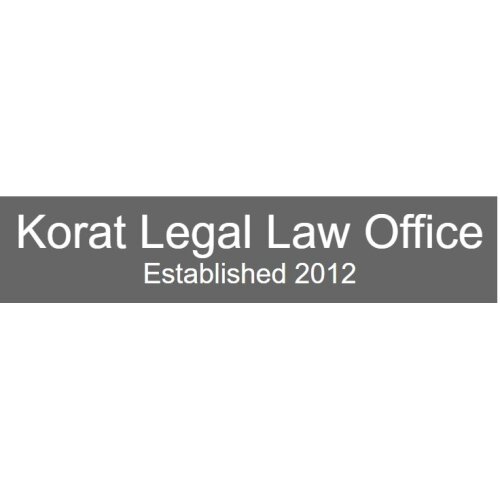ทนายความ การยึดทรัพย์ ที่ดีที่สุดใน นครราชสีมา
แบ่งปันความต้องการของคุณกับเรา รับการติดต่อจากสำนักงานกฎหมาย
ฟรี ใช้เวลา 2 นาที
คู่มือฟรีสำหรับการจ้างทนายความอสังหาริมทรัพย์
รายชื่อทนายความที่ดีที่สุดใน นครราชสีมา, ประเทศไทย
1. เกี่ยวกับกฎหมายการยึดทรัพย์ในนครราชสีมา, ประเทศไทย
การยึดทรัพย์เป็นส่วนหนึ่งของกระบวนการบังคับคดีในไทย เมื่อศาลมีคำสั่งให้เรียกคืนทรัพย์ที่ค้างชำระหรือชำระหนี้ตามพิพาท ทรัพย์ที่ถูกยึดอาจรวมถึงทรัพย์สินเคลื่อนไหวง่ายและทรัพย์สินที่ดิน อาคาร บ้าน และบัญชีธนาคาร
ในนครราชสีมา การบังคับคดีดำเนินผ่านศาลจังหวัดนครราชสีมาและสำนักงานบังคับคดีจังหวัด ผู้ที่เกี่ยวข้องมักต้องการทนายความเพื่อช่วยวางแผนยื่นคำร้อง พิจารณาทางเลือกทางกฎหมาย และติดตามกระบวนการอย่างถูกต้อง
ทนายความด้านบังคับคดีช่วยตรวจสอบความถูกต้องของคำสั่งศาล คัดกรองสิทธิของลูกหนี้และเจ้าหนี้ และป้องกันการยึดทรัพย์เกินสมควร เช่น กรณียึดทรัพย์ที่ไม่เพียงพอหรือไม่ตรงขั้นตอนทางกฎหมาย
ข้อมูลพื้นฐานเกี่ยวกับบังคับคดีในประเทศไทยมุ่งเน้นการคุ้มครองสิทธิทั้งสองฝ่ายภายในกรอบกฎหมายและศาลที่มีอำนาจในพื้นที่
2. ทำไมคุณอาจต้องการทนายความ
หากคุณอยู่ในนครราชสีมา และเผชิญคดีบังคับคดี ทนายความช่วยคุณวางแผนแนวทางต่อสู้คดีและลดความเสี่ยงต่อทรัพย์สินส่วนใหญ่
กรณีเจ้าหนี้ยื่นคำร้องศาลเพื่อยึดทรัพย์ของลูกหนี้ในพื้นที่โคราช ทนายจะตรวจสอบเอกสาร คัดกรองข้อเรียกร้อง และยื่นคำร้องขอคัดค้านหรือขอผ่อนผันได้
กรณีทรัพย์สินที่ถูกยึดเป็นรถยนต์หรือทรัพย์สินเคลื่อนที่ ทนายจะพิจารณาช่องทางลดความเสียหาย เช่น ขอปลดล็อกทรัพย์ หรือยื่นขออำนาจศาลในการขายทรัพย์ภายใต้เงื่อนไขที่ถูกต้อง
กรณีมีข้อพิพาทด้านที่อยู่อาศัยหรือที่ดินในอำเภอเมืองนครราชสีมา ทนายช่วยยื่นคำร้องขอชะลอการบังคับคดี หรือขอจำกัดการยึดทรัพย์ที่ไม่จำเป็น
กรณีมีข้อสงสัยเกี่ยวกับค่าใช้จ่ายกระบวนการ ทนายจะให้คำแนะนำเกี่ยวกับค่าธรรมเนียม ศาล และค่าใช้จ่ายอื่นๆ เพื่อป้องกันค่าใช้จ่ายที่ไม่จำเป็น
กรณีต้องการเปรียบเทียบทางเลือกทางกฎหมาย เช่น เจรจาต่อรอง หรือการชำระหนี้โดยการติดตามทรัพย์สินบางส่วน ทนายสามารถแนะนำแนวทางที่เหมาะสมกับสถานการณ์คุณ
3. ภาพรวมกฎหมายท้องถิ่น
กฎหมายที่เกี่ยวข้องกับการบังคับคดีในประเทศไทยส่วนใหญ่มีพื้นฐานจากประมวลกฎหมายแพ่งและพาณิชย์ ซึ่งกำหนดแนวทางการได้มาและยึดทรัพย์ตามคำพิพากษา
นอกจากนี้ ระเบียบข้อบังคับของกระทรวงยุติธรรมและประกาศของสำนักงานบังคับคดีให้รายละเอียดวิธีดำเนินการยึดทรัพย์ การอายัดทรัพย์ และการจำกัดสิทธิในทรัพย์สิน
ในนครราชสีมา แนวทางปฏิบัติควบคุมโดยศาลจังหวัดนครราชสีมา และสำนักงานบังคับคดีจังหวัด ซึ่งมุ่งคุ้มครองสิทธิของคู่กรณีและเสริมความโปร่งใสในการบังคับคดี
กฎหมายหลักที่เกี่ยวข้อง ประมวลกฎหมายแพ่งและพาณิชย์ (มาตราเกี่ยวกับบังคับคดี) เป็นกรอบทำให้ศาลมีอำนาจเรียกทรัพย์คืนตามคำพิพากษา
ระเบียบข้อบังคับท้องถิ่น กำหนดขั้นตอนการยึดทรัพย์ภายในจังหวัด เช่น การแจ้งทรัพย์ การตรวจสอบ และการชี้แจงสิทธิของฝ่ายใดฝ่ายหนึ่ง
แนวคิดทางกฎหมายเฉพาะทาง คดีบังคับคดีมักประกอบด้วยอายัดทรัพย์ การยึดทรัพย์ และการขายทรัพย์เพื่อชำระหนี้ ซึ่งต้องดำเนินตามมาตรฐานของศาลและกระทรวงยุติธรรม
4. คำถามที่พบบ่อย
อะไรคือความหมายของการยึดทรัพย์ในบริบทบังคับคดี
การยึดทรัพย์หมายถึงการที่ศาลอนุญาตให้ทรัพย์สินของลูกหนี้ถูกยึดจากตำแหน่งผู้ถือครอง เพื่อใช้ชำระหนี้ที่มีกับเจ้าหนี้ หลังจากคำสั่งศาลมีผลแล้ว
อย่างไรที่ทนายช่วยในการยึดทรัพย์ในนครราชสีมา
ทนายตรวจสอบความถูกต้องของคำสั่งศาล แนะนำแนวทางแก้ไข และยื่นคำร้องขอคุ้มครองสิทธิหรือขอผ่อนผันตามกรณี
เมื่อไหร่ที่การยึดทรัพย์สามารถเริ่มได้หลังคำพิพากษา
หลังศาลมีคำพิพากษาและคำสั่งบังคับคดีที่ถูกต้อง ทรัพย์อาจถูกยึดในระยะเวลาที่กำหนดโดยศาล แต่กรณีบางประเด็นอาจมีการชะลอได้หากมีเหตุผลที่สมควร
ที่ไหนที่ทรัพย์สินถูกยึดในนครราชสีมา
ทรัพย์สินมักถูกยึดในสถานที่ที่ทรัพย์นั้นตั้งอยู่ หรือที่ศาลและสำนักงานบังคับคดีในจังหวัดนครราชสีมาเป็นผู้ดำเนินการ
ทำไมต้องมีทนายความในกระบวนการบังคับคดี
ทนายช่วยลดความเสี่ยงชี้แจงข้อเท็จจริง ตรวจสอบเอกสาร และป้องกันการละเมิดสิทธิของคุณในกระบวนการ
สามารถยื่นคำร้องขออายัดทรัพย์ก่อนการยึดได้หรือไม่
ได้ในบางกรณี โดยหลักการอายัดทรัพย์คือการระงับการถ่ายเททรัพย์เพื่อป้องกันไม่ให้ทรัพย์สินถูกส่งออกจากพื้นที่ก่อนกระบวนการชี้แจง
ค่าธรรมเนียมและค่าใช้จ่ายในการยึดทรัพย์เป็นอย่างไร
ค่าใช้จ่ายรวมถึงค่าทนายความ ค่าธรรมเนียมศาล และค่าใช้จ่ายอื่นที่เกี่ยวข้อง ซึ่งขึ้นอยู่กับความซับซ้อนของคดีและระยะเวลาการดำเนินการ
ระยะเวลาประมาณในการบังคับคดีมักเป็นอย่างไร
ระยะเวลาขึ้นกับความซับซ้อนของคดี สถานะของทรัพย์ และการอุทธรณ์ หากไม่มีข้อพิพาทยืดยาว กระบวนการมักใช้หลายเดือนถึงปี
ฉันต้องมีหลักฐานอะไรบ้างในการยื่นคำร้องต่อศาล
เอกสารหลักประกอบรวมถึงคำพิพากษาศาล ใบแจ้งหนี้ หนังสือรับรองหนี้ และหลักฐานทรัพย์ที่ถูกยึดหรืออายัด
การยึดทรัพย์กับที่ดิน/บ้านมีขั้นตอนอย่างไร
การยึดที่ดินหรือบ้านมักต้องผ่านกระบวนการบังคับคดีและประกาศให้ผู้ครอบครองทรัพย์ทราบ พร้อมดำเนินการขายทรัพย์เพื่อชำระหนี้ถ้าจำเป็น
การยึดทรัพย์กับบัญชีธนาคารทำได้อย่างไร
ธนาคารจะถูกสั่งให้ระงับการถอนทรัพย์และนำเงินเข้ากระบวนการบังคับคดี ภายใต้คำสั่งศาลที่ถูกต้อง
ถ้าคืนทรัพย์ได้ก่อนการขายทรัพย์จะทำอย่างไร
สามารถยื่นคำร้องขอคืนทรัพย์หรือยกเลิกการยึดถ้าสามารถชำระหนี้หรือเจรจาข้อตกลงกับเจ้าหนี้ได้
5. ทรัพยากรเพิ่มเติม
- กระทรวงยุติธรรม (ข้อมูลนโยบาย กฎหมายบังคับคดี และบริการออนไลน์) - https://www.just.go.th
- ศาลยุติธรรม (คู่มือกระบวนการบังคับคดี และบริการข้อมูลศาล) - https://www.coj.go.th
- จังหวัดนครราชสีมา (เว็บไซต์ทางการจังหวัดสำหรับข้อมูลบริการราชการท้องถิ่น) - https://www.nakhonratchasima.go.th
6. ขั้นตอนถัดไป
- รวบรวมเอกสารส่วนตัวและเอกสารคดีที่เกี่ยวข้องทั้งหมดก่อนปรึกษาทนาย
- ค้นหาทนายความที่มีประสบการณ์ด้านบังคับคดีในนครราชสีมา
- ติดต่อสำนักงานทนายเพื่อขอคำปรึกษาเบื้องต้น และนัดพบ
- ปรึกษาด้านค่าใช้จ่ายและขอบเขตการให้บริการของทนาย
- เตรียมคำร้องและเอกสารยื่นต่อศาลพร้อมทนายความ
- ลงนามสัญญาความเป็นตัวแทนและเริ่มกระบวนการบังคับคดีอย่างเป็นทางการ
- ติดตามสถานะคดีอย่างสม่ำเสมอ และปรับแผนหากจำเป็น
Lawzana ช่วยคุณค้นหาทนายความและสำนักงานกฎหมายที่ดีที่สุด ใน นครราชสีมา ผ่านรายชื่อผู้เชี่ยวชาญด้านกฎหมายที่มีคุณสมบัติเหมาะสมที่คัดสรรและตรวจสอบล่วงหน้า แพลตฟอร์มของเรานำเสนอการจัดอันดับและโปรไฟล์โดยละเอียดของทนายความและสำนักงานกฎหมาย ช่วยให้คุณเปรียบเทียบตามสาขากฎหมาย รวมถึง การยึดทรัพย์ ประสบการณ์ และความคิดเห็นของลูกค้า
แต่ละโปรไฟล์ประกอบด้วยคำอธิบายเกี่ยวกับสาขากฎหมายของสำนักงาน รีวิวจากลูกค้า สมาชิกในทีมและหุ้นส่วน ปีที่ก่อตั้ง ภาษาที่พูด ที่ตั้งสำนักงาน ข้อมูลการติดต่อ การมีตัวตนบนโซเชียลมีเดีย และบทความหรือแหล่งข้อมูลที่เผยแพร่ สำนักงานส่วนใหญ่บนแพลตฟอร์มของเราพูดภาษาอังกฤษและมีประสบการณ์ทั้งในเรื่องกฎหมายท้องถิ่นและระหว่างประเทศ
ขอใบเสนอราคาจากสำนักงานกฎหมายชั้นนำ ใน นครราชสีมา, ประเทศไทย — รวดเร็ว ปลอดภัย และไม่ยุ่งยาก
ข้อจำกัดความรับผิดชอบ:
ข้อมูลที่ให้ไว้ในหน้านี้มีวัตถุประสงค์เพื่อเป็นข้อมูลทั่วไปเท่านั้นและไม่ถือเป็นคำแนะนำทางกฎหมาย แม้ว่าเราจะพยายามตรวจสอบความถูกต้องและความเกี่ยวข้องของเนื้อหา แต่ข้อมูลทางกฎหมายอาจเปลี่ยนแปลงได้ตามกาลเวลา และการตีความกฎหมายอาจแตกต่างกันไป คุณควรปรึกษาผู้เชี่ยวชาญด้านกฎหมายที่มีคุณสมบัติเหมาะสมเพื่อขอคำแนะนำเฉพาะสำหรับสถานการณ์ของคุณเสมอ
เราปฏิเสธความรับผิดทั้งหมดสำหรับการกระทำที่ทำหรือไม่ทำตามเนื้อหาในหน้านี้ หากคุณเชื่อว่าข้อมูลใดไม่ถูกต้องหรือล้าสมัย โปรด contact us และเราจะตรวจสอบและแก้ไขตามความเหมาะสม









